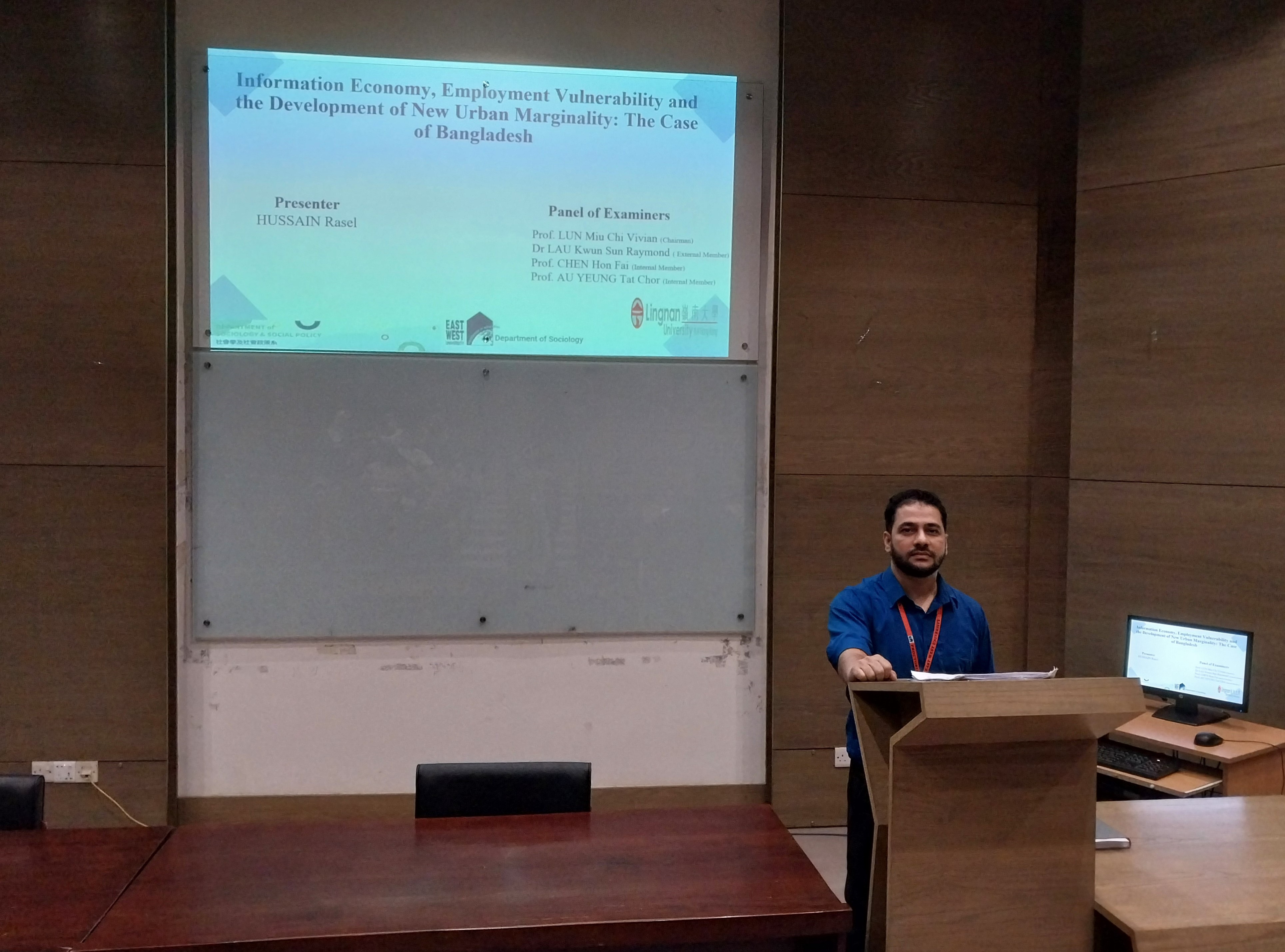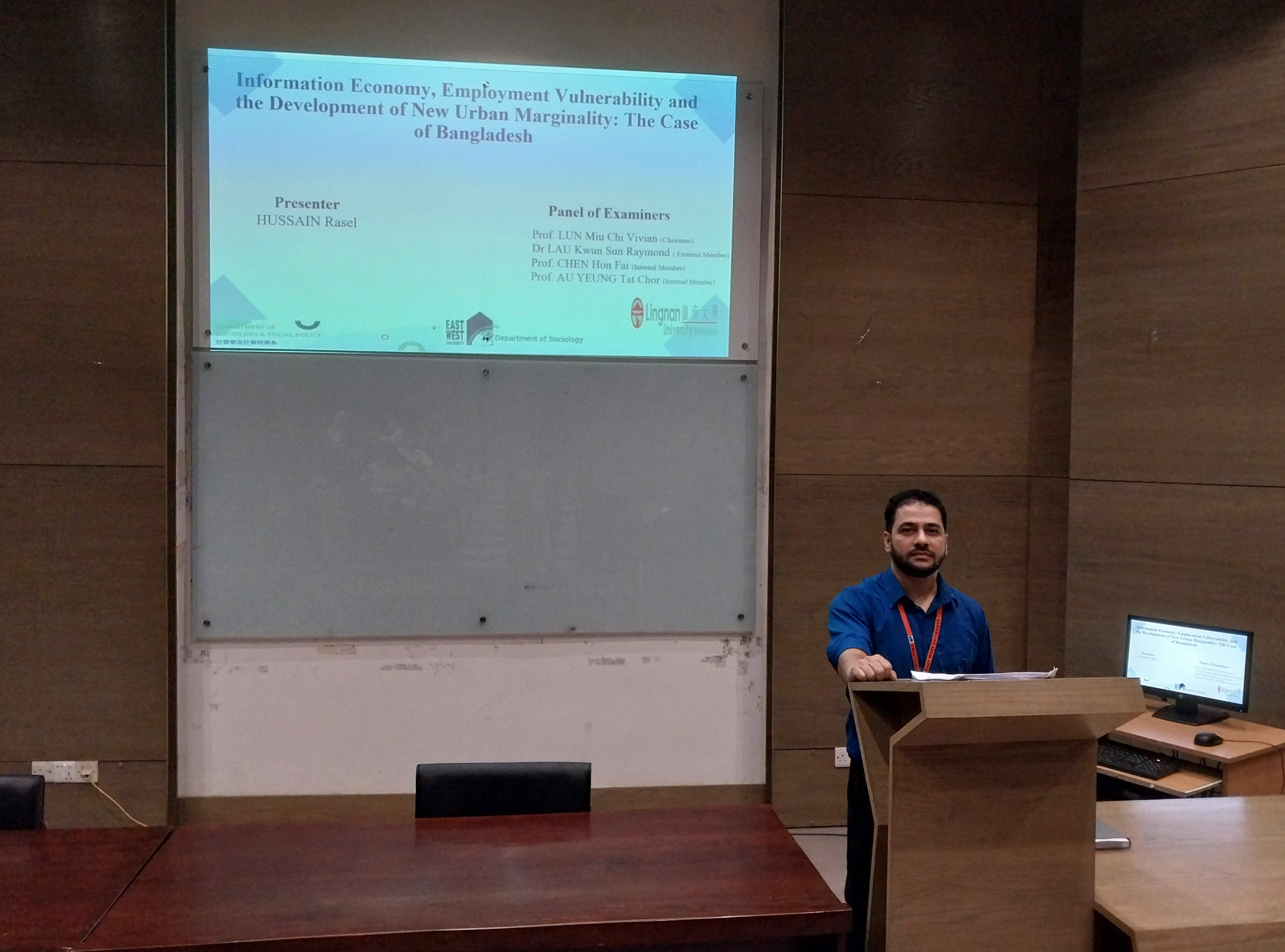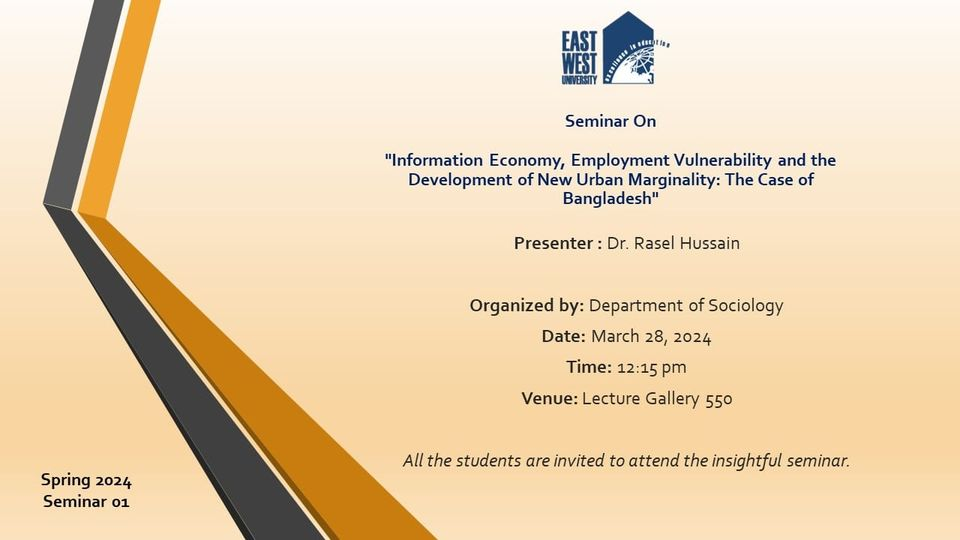



01
Apr
Information Economy, Employment Vulnerability and the Development of New Urban Marginality: The Case of Bangladesh | Dr. Rasel Hussain
The Department of Sociology at East West University has initiated a seminar series in the Spring 2024 semester, aimed at exploring critical sociological issues pertinent to contemporary society. As part of this series, Dr. Rasel Hussain, Senior Lecturer, Department of Sociology, presented his PhD research titled "Information Economy, Employment Vulnerability and the Development of New Urban Marginality: The Case of Bangladesh."
Dr. Hussain's study examined how the evolution of technologically advanced platforms within the information economy has influenced the employment landscape and exacerbated the precariousness faced by individuals engaged in the informal sector. The research highlighted how the lack of access to technologically developed platforms and the associated costs have contributed to the polarization of informal sector employees, rendering them more susceptible to unemployment. This polarization underscored the widening gap between those integrated into the information economy and those left on its periphery.
The study identified various factors that exacerbate the vulnerability of informal sector workers, including inadequate social, cultural, human, and economic capital. Additionally, negative risk and benefit assessments deter these individuals from actively seeking employment opportunities within the information economy, further perpetuating their marginalization. Notably, the research underscored the heightened vulnerability experienced by women respondents within the informal sector. Gender dynamics intersect with economic precarity, amplifying the challenges faced by women in accessing and benefiting from opportunities within the information economy.
In light of the study's findings, Dr. Hussain advocates for the implementation of policies aimed at effectively integrating informal sector workers into the information economy. He stressed, such policies should prioritize providing essential resources and support mechanisms to equip these individuals with the requisite skills and resources needed to navigate and thrive within technologically driven employment environments.
The insights gleaned from Dr. Hussain's research serve as a springboard for further scholarly inquiry and policy formulation aimed at addressing the systemic inequalities entrenched within contemporary urban landscapes.